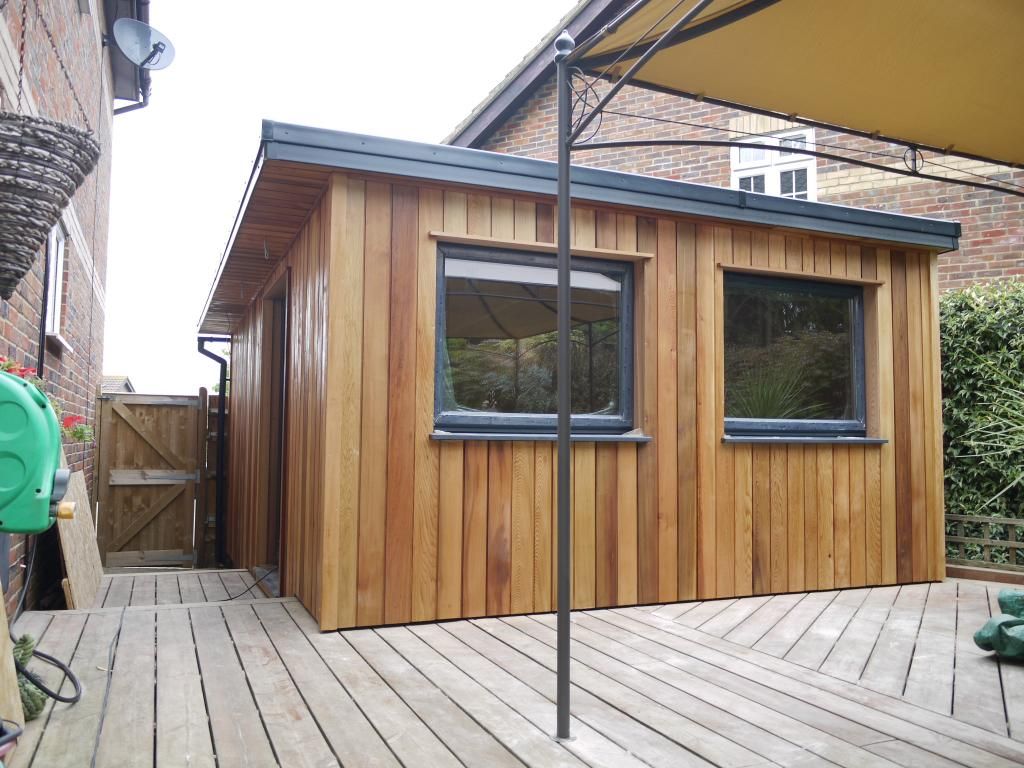Red C220
MB Enthusiast
My little business has grown to an unexpected degree this year, we needed to build an office in the garden so we could cope:-

We're a few weeks away from being able to move in and I need some advice on a computer set up as I'm a retard when it comes to such things.
There will be two workstations. I have wired internet in the office from the modem in the house (BT Infinity) and we have a decent Samsung laser printer that can be networked.
We also have a VOIP phone system that we will expand to two handset and two lines.
What we'd like is one computer with two workstations so we're both able to work from the same hard drive, print to the same printer etc.
What would I need to do this? How would I actually set it all up and can I do without having to have Windows 8? (I don't want a Mac btw).
Ideally a shopping list on the Dell website would be perfect please.
TIA.

We're a few weeks away from being able to move in and I need some advice on a computer set up as I'm a retard when it comes to such things.
There will be two workstations. I have wired internet in the office from the modem in the house (BT Infinity) and we have a decent Samsung laser printer that can be networked.
We also have a VOIP phone system that we will expand to two handset and two lines.
What we'd like is one computer with two workstations so we're both able to work from the same hard drive, print to the same printer etc.
What would I need to do this? How would I actually set it all up and can I do without having to have Windows 8? (I don't want a Mac btw).
Ideally a shopping list on the Dell website would be perfect please.
TIA.
Last edited:
